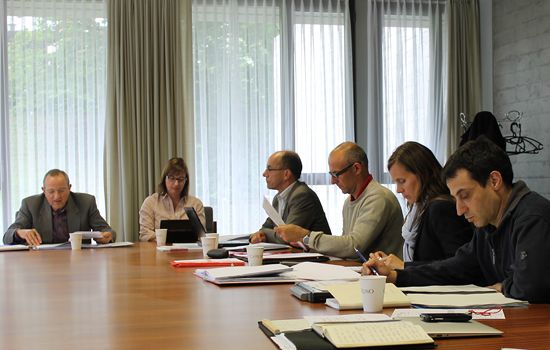Next up on the Individualized Education Plan (IEP) writing
mini-series train(wreck) is: “spelling/grammar/name errors” and “old/irrelevant
information.”
Spelling/Grammar/Name Errors
These mistakes are pretty much the most rage inducing for
me. I can’t say much more about this area other than: do you seriously expect me to believe that someone
couldn’t take an extra ten minutes to re-read their work and hit the spell-check
button on their IEP writing software? My Type-A eyes glow red writing about
this. Do accidents happen? Absolutely, but not being mindful and correcting
them is not okay. Spelling errors are lazy, and while some people may
not be familiar with certain grammatical conventions, colleagues/supervisors
are there to proof-read if there is any doubt. Even Microsoft Word can tell a
writer if there are fragments and grammatical disagreements. That ten minutes of
proofreading is going to look really appealing if you ever get an angry phone
call from a parent (or advocate) who found the name “Demarcus” in their child’s
IEP instead “Suzanne” because the writer copied/pasted un-checked work. Write
every IEP like your freshman composition professor is standing behind you (I
know you just checked btw).
 |
| <3 Oxford comma |
Old/Irrelevant Information
While no longer as much of a problem within my building (because
my team and I go over IEPs with a fine-tooth comb and I expect teachers to do
the same at annual reviews), finding old/irrelevant information in IEPs from
students transferring in from another site in the district or out of district
is a huge problem. It is sadly commonplace to find Present Levels of
Educational Performance (PLEPs) that haven’t been updated in years. This can
include: wrong dates (“As of September
2010…”), referring to past grades (15yo
Lily is no longer a “sixth grader”), old
test scores (always have the most up-to-date data), incorrect physical/medical information (like medication name that a
child no longer takes—best to leave them off completely), out-dated related
service info (worst when a child no longer receives that service!), and more.
Since the IEP is a current
educational “snapshot,” it should always contain the most up-to-date
information and should be edited and updated at every meeting held for the student. Even if it’s just a quick
amendment meeting to update a goal, make it a habit to also update the child’s
curriculum-based measurement/DIBELS/AIMSweb/semester grades/number of office
referrals or suspensions/strengths/preferences/etc. I understand that this
could be tedious, but it doesn’t have to take a long time if you have easy
access to the necessary info (or have the teacher making the edits) and will
become second-nature, especially if the framework is already there. Whenever my
Committee on Special Education (CSE) chairperson makes a new meeting agenda, we pop
through each child’s IEP, change document and service “start” dates, clean out
old data/scores, and make sure there’s no info older than the last annual
review (within the year)—before writing any new information. The benefit of
this is twofold: you get a current, compliant document, and if the child were
to ever leave your school, the new building would have a very representative document
and clear picture of where the kiddo is functioning. Err’body wins!
Don't forget to check out and "Like" my Facebook page!




























